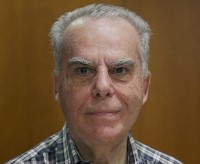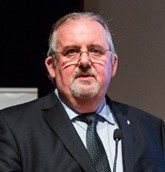for the National Recovery and Resilience
Plans in the European Union
FEATURED PAPER
By Federico Minelle, Massimo Pirozzi, Alessandro Quagliarini, Francesca Apponi, Francesca Brusciotti, Damiano Buzzi, Marianna Mancone
ISIPM (Italian Institute of Project Management)
Rome, Italy
ABSTRACT
The European Union (EU), in order to mitigate the economic and social impacts of the coronavirus pandemic and also to make European economies and societies more sustainable, resilient, and, in general, better prepared for the challenges and opportunities of the green and digital transitions, decided to allocate special additional funding called Recovery and Resilience Facility (RRF), which is a temporary instrument that makes available to the EU Nations about €750 billion in loans and grants. The Recovery and Resilience Facility is based on six “pillars”– i.e. green transition, digital transformation, economic cohesion, productivity and competitiveness, social and territorial cohesion, health, economic, social, and institutional resilience, and policies for the next generation – and is composed of 27 National Recovery and Resilience Plans (NRRPs), one for each EU Country, which all share the same three strategic axes – i.e., digitization and innovation, ecological transition, and social inclusion. Since RRF is performance-based, and relevant payments are unlocked only if the relevant reforms and investments are realized according to the schedule, each NRRP is a portfolio where effective project management is essential to target and achieve success. This paper will give an overview of the EU RRF, propose an innovative value-driven project management approach based on Key Performance Indicators (KPIs) to effectively manage the diverse NRRP projects, and focus on the case of the Italian NRRP.
EU RECOVERY AND RESILIENCE FACILITY AND RELEVANT NATIONAL RECOVERY AND RESILIENCE PLANS
The European Union (EU) is a specific “sui generis” economic and political union, which at present is made up of 27 European countries (Member States). Still, several other countries are currently negotiating to join it. Its origin dates back to the end of the Second World War to promote economic cooperation and reduce commercial conflict among the six founding countries: Belgium, France, Italy, Luxembourg, the Netherlands, and West Germany.
Since its creation, several European States joined the Union, and its area of influence expanded from merely economic issues to others regarding health, climate, justice, and immigration. In general, the EU established a single internal market through a standardized system of laws that apply to all member states in those matters, and only those matters, where the states have agreed to act as one, while EU policies have the main goal to ensure the free movement of people, goods, services, and capital within it; and maintain standard policies on specific agreed issues. For instance, one significant advantage for European citizens is the abolition of controls at the borders, which means they can circulate freely across different countries and live, study and work in the country of their choice. In addition, a monetary union called the Eurozone, composed of 19 countries that use Euro currency, has been fully operational since 2002. From a political perspective, the EU is a specific entity with some characteristics of a federation and some of a confederation.
The EU operates by the basic principles of both conferrals, which states that EU actions are possible only within the limits that are conferred by the treaties between each country and the Union itself, and subsidiarity, which says that EU actions are possible only if the member states are not in the condition of achieving good results by acting alone.
The leading institutions that contribute to the EU’s decisional process are the European Parliament (legislative), which represents the citizens, the European Council (providing directions), which is composed of the heads of state/government of each country, the Council of the European Union (legislative), which represents the governments of the Member States and the European Commission (executive), which represents the interests of the EU as a whole. In general, the EU’s decisions are implemented via either EU directives, which generate the need for subsequent domestic legislation in the member states, or EU regulations, which are immediately applicable in all member states.
All the programs and projects funded by the EU budget fall under one of three types of implementation modes depending on the nature of the funding concerned (European Commission, 2022):
More…
To read entire paper, click here
How to cite this paper: Minelle, F, Pirozzi, M, Quagliarini, A, Apponi, F, Buzzi, D, Brusciotti, F, and Mancone, M (2022). Project, Program and Portfolio Management for the National Recovery and Resilience Plans in the European Union; PM World Journal, Vol. XI, Issue VII, July. Available online at https://pmworldlibrary.net/wp-content/uploads/2022/07/pmwj119-Jul2022-Minelle-Pirozzi-et-al-PPPM-for-EU-National-Recovery-and-Resilience-Plans.pdf
About the Authors

Federico Minelle
Rome, Italy
![]()
Federico Minelle graduated in Physics at “Sapienza” – Rome University, presenting a Master’s degree thesis on Artificial Intelligence (AI) research, he immediately joined the Operations Research group in Olivetti & Co, Ivrea, Italy. Afterwards, for more than 40 years he consulted in Business Organization, Information Systems and Project Management. Previously as a partner at Accenture and then as senior partner of Italian consultancy firm PRS – Planning, Ricerche e Studi, he managed and monitored significant projects in several industries, mainly in Engineering and Construction (e.g. manufacturing and nuclear power plants, transportation infrastructures) and in Government (ICT and process innovation).
He taught for more than 20 years Business Information Systems in the Computer Science Dept. of “Sapienza” – Rome University, where he currently teaches Project Management & ICT for the academic Master Degree in ICT Governance and Audit. At the same time, he taught similar topics to Government officers attending SNA (National Public Administration School) courses.
He was Editorial Director of the Italian journal “Il Project Manager”, developing a fruitful cooperation with the PM World Journal. Just after retiring at the end of 2017, he was appointed as Scientific Director of the same Italian journal, where he writes editorial notes, papers and book reviews. Since 2018, Federico Minelle is an International Editorial Advisor for the PM World Journal (PMWJ) and by extension for the PM World Library. In the late ’70 he was co-founder of AICE (Italian Association for Economic Engineering), member of ICEC (International Cost Engineering Council). He is an honorary member of ISIPM (Italian Institute for Project Management).
In the early 1990s he co-authored two books on strategies and management of Engineering & Construction business, edited by the relevant Industry Associations, while more recently he contributed to the “Guidelines for Quality ICT Procurement”, edited by the Italian Government Agency for ICT, and to the book “Project Life Cycle Economics”, edited by M. Pica (Gower, 2015). Federico has authored several papers and seminars on Cost/Benefit analysis for ICT Government projects and on PMO functions in ICT organizations. He is a Certified Project Manager according to the UNI 11648:2016 standard, in accordance with the ISO 21500:2013 international standard (Guidance on project management).

Massimo Pirozzi
Rome, Italy
![]()
Massimo Pirozzi, MSc cum laude, Electronic Engineering, University of Rome “La Sapienza”, Principal Consultant, Project Manager, and Educator. He is a Member of the Executive Board and of the Scientific Committee, and an Accredited Master Teacher, of the Istituto Italiano di Project Management (Italian Institute of Project Management). He is certified as a Professional Project Manager, as an Information Security Management Systems Lead Auditor, and as an International Mediator. He is a Researcher, a Lecturer, and an Author about Stakeholder Management, Relationship Management, and Complex Projects Management, and his papers have been published in U.S.A., in Italy, and also in Russia; in particular, he is the Author of the innovative Book “The Stakeholder Perspective: Relationship Management to enhance Project value and Success“, CRC Press, Taylor & Francis Group, Boca Raton (FL), U.S.A., October 2019. Due to the acknowledgement of his comments on stakeholder-related issues contained in Exposure Draft of The Standard for Project Management – 7th Edition, he has been recognized as one of the Contributors and Reviewers of The PMBOK® Guide – Seventh Edition, and he received the Certificate of Appreciation for Excellence for his volunteer contributions to the Project Management Institute and the project management profession in 2020.
Massimo Pirozzi has a wide experience in managing large and complex projects, programs, and portfolios in national and international contexts, and in managing business relations with public and private organizations, including multinational companies, small and medium-sized enterprises, research institutes, and non-profit organizations. He worked successfully in several sectors, including Defense, Security, Health, Education, Engineering, Logistics, Cultural Heritage, Transport, Gaming, Services to Citizens, Consulting, and Web. He was also, for many years, a Top Manager in ICT Industry, and an Adjunct Professor in Organizational Psychology. He is registered as an Expert both of the European Commission, and of Italian Public Administrations.
Massimo Pirozzi is an Accomplished Author and an International Editorial Advisor of PM World Journal. He received three 2020 PM World Journal Editor’s Choice Awards for his featured paper “Project Management for Evidence Based Medicine” (co-authored with Dr. Lidia Strigari), for his Article “Project communications 1.0 and 2.0: from information to interactivity” and for his report from Italy titled “The fight against Coronavirus disease (COVID-19) from the perspectives of projects and of project management“. He received also two 2019 PM World Journal Editor’s Choice Awards for his featured paper “Stakeholders, Who Are They?”, and for his report from Italy titled “PM Expo® and PM Maturity Model ISIPM-Prado®“, and a 2018 PM World Journal Editor’s Choice Award for his featured paper “The Stakeholder Management Perspective to Increase the Success Rate of Complex Projects“. Massimo can be contacted at max.pirozzi@gmail.com.

Alessandro Quagliarini
Rome, Italy
![]()
Alessandro Quagliarini, MScEng, PMP, MBA, is an experienced Program Manager, with more than 18 years of experience in the ICT sector. He holds a Master’s Degree in Telecommunication Engineering from the University of Rome “Tor Vergata” and a Doctor’s degree in Business Administration from the Bologna University Business School. He got both PMP® and ISIPM-Av® advanced certifications in Project Management, and he is also certified as an Information Management Systems Lead Auditor. He is a Member of the Board of the “Italian Institute of Project Management” (ISIPM) for ten years, and he is an Accredited Teacher in Project Management.
Alessandro is currently engaged in the “Digital Transformation” engineering and industrialization programs of the new Italian “Open Fiber” telecommunications network, with particular focus on the engineering of delivery and assurance processes for the provision of retail, business and industries customers, on the operational management and procurement support for the definition of specifications and contracts, on the definition of operating rules/ instructions for maintenance and of requirements for systems development, on the support to the commercial and regulatory lines for the definition of services and processes for customers (Other Licensed Operators and Industries), and on the definition and management of operations compliance with ISO Standards and International Best Practices.
As a Member of the ISIPM Board, he focuses his volunteer activities mainly on the cultural diffusion of the project management to young people – specifically to high school students and also staff, including teachers. As an ISIPM accredited teacher, he has taught project management in public and private institutions, in schools and in universities. He has experience in the organization of events and as a speaker in conferences, and also in proposing and managing EU-funded projects. Alessandro can be contacted at a.quagliarini@gmail.com

Francesca Apponi
Rome, Italy
![]()
Francesca Apponi, Ph.D. student, Consultant, got a Master’s Degree in Management Engineering at the University of Rome “Tor Vergata”. She has the Certification in Project Management resealed by the Institution Italiano di Project Management (ISIPM). Her research areas are Scientometrics and Social Network Analysis. She deals with Data mining and analytics through statistical techniques, artificial intelligence, and machine learning. Her interests are in Project Management, Marketing, and Innovation. Francesca can be contacted at apponifrancesca@gmail.com

Francesca Brusciotti
Rome, Italy
![]()
Francesca Brusciotti, train manager at Trenitalia SPA, got a master’s degree in Architectural Engineering at University of Roma “Tor Vergata”, with a thesis on tensostructure. She has the Certifications in Project Management ISIPM Base® and Advanced® resealed by the Istituto Italiano di Project Management (ISIPM). During university she was president of BEST (Board of European Students of Technology), a major student association, leading the organization of many events, such as engineering competitions and international events. Francesca can be contacted at f.brusciotti@gmail.com

Damiano Buzzi
Rome, Italy
![]()
Damiano Buzzi, Junior Consultant in Capgemini Engineering has a master’s degree in Management Engineering at the University of Rome “Tor Vergata”, with a thesis on operations research about vehicle routing. He achieved the Certification in Project Management resealed by the Istituto Italiano di Project Management (ISIPM) in 2018. His main areas of focus are budgeting and cost control of ICT projects. Damiano can be contacted at dambuzzi@gmail.com

Marianna Mancone
Rome, Italy
![]()
Marianna Mancone, Project and cost controller in Ghella SPA, got a master’s degree in Management Engineering at the University of Rome “Tor Vergata”, with a thesis on “new generation project management software”. Recently, she achieved the Certification in Project Management resealed by the Istituto Italiano di Project Management (ISIPM). During university she was vice-president of BEST (Board of European Students of Technology), a major student association, leading the organization of many events, such as engineering competitions and international events. Her main areas of focus are Project Management and construction of large public projects. Marianna can be contacted at marianna.mancone@gmail.com









